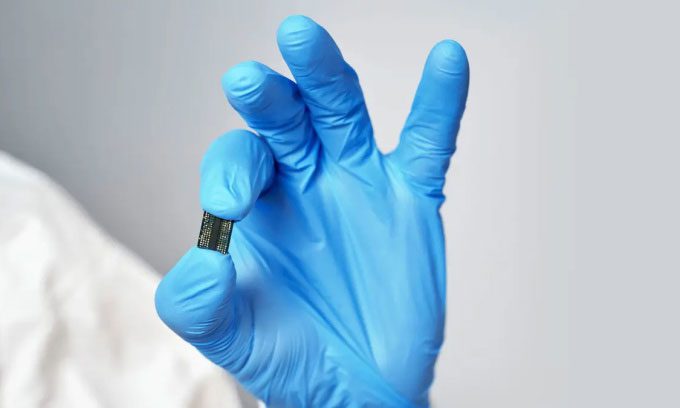Two new AI chips enable offline voice control and epilepsy seizure detection while consuming very low power.
AI chips used for heavy tasks typically require a large amount of energy, limiting their practicality. Professor Zhou Jun and his colleagues at the University of Electronic Science and Technology of China (UESTC) have developed two new AI chips that they claim are among the most energy-efficient in the world, according to Interesting Engineering on March 25.

A small computer chip. (Photo: Gulnara Mandrykina/iStock).
The research team significantly reduced their power consumption through optimization of algorithms and structure. The two new AI chips were introduced at the IEEE International Solid-State Circuits Conference (ISSCC) 2024 held in San Francisco, USA.
The first AI chip is designed for smart devices, enabling offline voice control capabilities. According to the research team, this chip excels at keyword detection and speaker verification by recognizing the voice signals of the target speaker. Its main advantage is its ability to overcome the limitations of standard speech recognition systems. It can accurately recognize the words of the target speaker even in noisy situations with distracting factors such as television, music, or conversation.
“This chip achieves a recognition power consumption of under 2 microjoules per instance, with an accuracy rate of over 95% in quiet conditions and 90% in noisy environments, setting new global standards for both energy efficiency and accuracy,” the research team explained.
In a test demonstration, the 1cm2 chip was integrated into a microcontroller inside a toy car to control its movement. This chip can also be utilized for low-energy voice control applications such as smart homes, wearable devices, and smart toys.
The second AI chip developed by the research team assists in detecting seizure signals in epilepsy patients. Designed for wearable devices, it utilizes electroencephalogram (EEG) recognition capabilities to detect seizures and issue alerts, allowing patients to seek medical assistance. With an average recognition power consumption of only 0.07 microjoules, this is the most energy-efficient chip of its kind in the world.
Compared to another chip introduced at last year’s ISSCC conference, the new chip increases accuracy by 10% and reduces power consumption by over 90%. In addition to seizure detection, it has potential applications in brain-computer interfaces and sleep monitoring.





















































